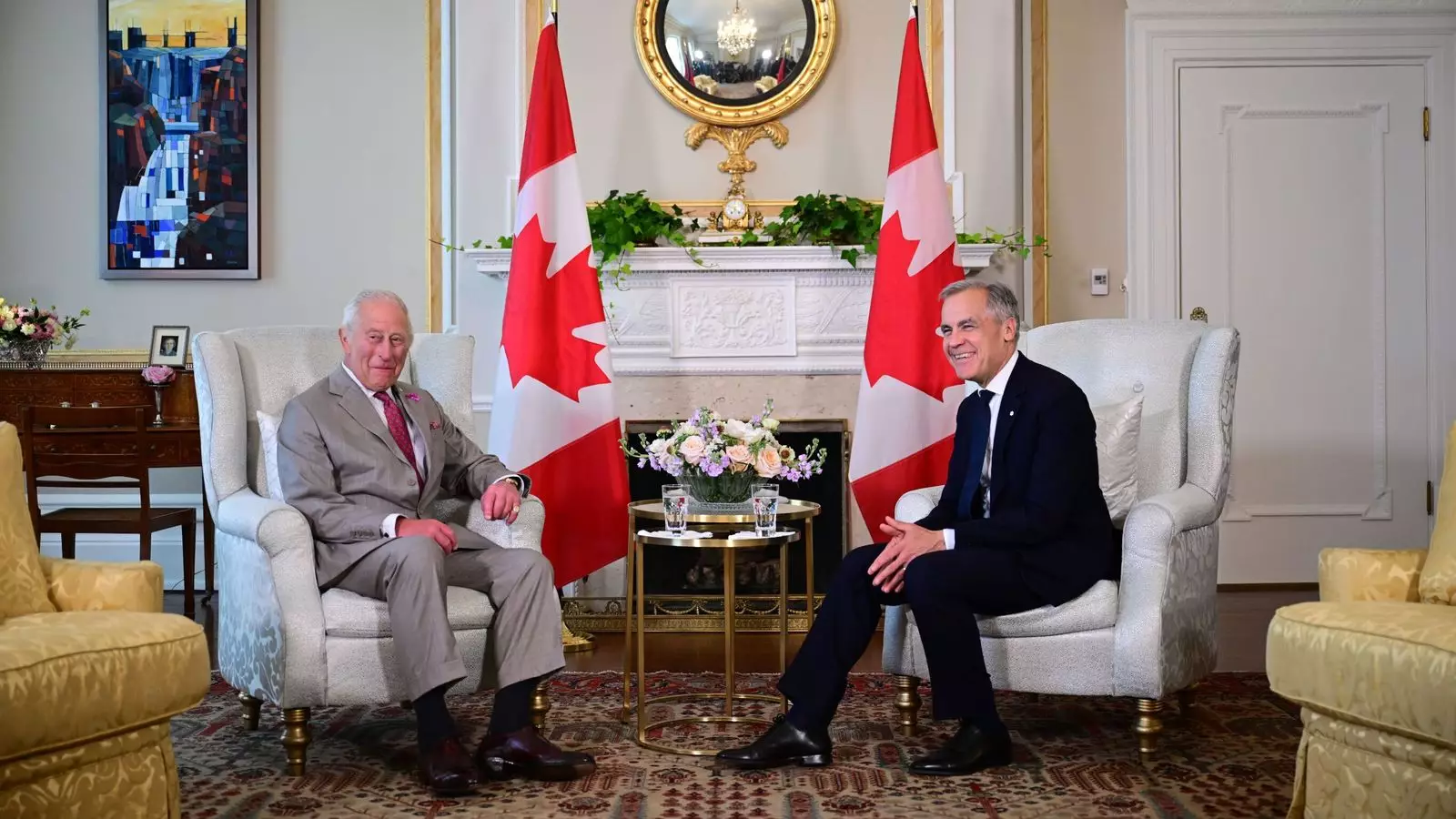As King Charles and Queen Camilla make their way to Canada, the air is charged not only with royal fanfare but with echoes of forgotten injustices. Campaigners are fervently urging the monarchs to use this significant visit to acknowledge the suffering of “Home Children”—over 100,000 British orphans sent to Canada from 1869 to 1948—whose plight has been largely overlooked. This call for an apology isn’t just a matter of formality; it is a crucial step toward recognition and healing for those who have lived in the shadow of neglect and abuse.
These children, often seen as mere commodities, were uprooted from orphanages and dispatched across the ocean to be employed as cheap labor under dire conditions. Many became farmhands or domestic servants, but behind the façade of opportunity lay a system riddled with exploitation and maltreatment. It’s baffling how Canada has evaded an apology, especially in contrast to countries like the UK and Australia, which have openly accepted their roles in this disgraceful chapter.
The Urgency of Apology
John Jefkins, whose father Bert was one of the countless ‘Home Children’ sent to Canada, speaks passionately about the need for an acknowledgment of these historical wrongs. It isn’t merely a sad story from the past; it resonates through generations, spreading across families that still bear the scars of such traumatic experiences. He remarks that “it’s really important for the Home Children themselves and for their descendants.” This sentiment highlights the urgency behind seeking an apology: it’s essential for the healing process, as well as for raising awareness regarding the complexities of such a traumatic legacy.
Furthermore, it is worth considering the sociopolitical implications of such an acknowledgment. At a time when discussions around colonialism and historical injustices are erupting across various platforms, an apology could create an enlightening discourse on how Canada grapples with its past. For King Charles, this is not just an opportunity to bolster his role as the Head of the Commonwealth; it can act as a catalyst for reevaluating Canada’s historical narrative and its implications on contemporary society.
Royal Engagements: A Double-Edged Sword
What may seem like an ordinary royal engagement is anything but. The royal visit serves as a mirror reflecting both British history and Canadian identity—a dual legacy that must be confronted. During a previous visit to Canada, then-Prince Charles had acknowledged the country’s need to “come to terms with the darker and more difficult aspects of the past.” His words were stark and profoundly necessary; yet, whether they will lead to meaningful action remains a contentious question.
It would be naive to think that a royal visit will single-handedly shift Canadian policy or attitudes toward acknowledging its colonial legacy. Yet, with the right pressure, representatives like King Charles and Queen Camilla could emphasize the importance of accountability. The mere act of seeking an apology sends ripples across both the monarchy and the political landscape in Canada, possibly prompting discussions that have long been deferred.
Colonial Echoes in Modern Politics
This visit occurs at a critical juncture in Canada’s political evolution, where reconciliation efforts with Indigenous peoples and marginalized communities are front and center. The echoes of historical injustices compel us to revisit the ways we construct our national identity. This royal engagement can serve as an ideal opportunity for healing and dialogue, not only regarding the Home Children but also among other marginalized groups whose stories have been left untold in the annals of Canadian history.
When breadth and depth of historical context are acknowledged, they inform not just our understanding of the past but also shape a more inclusive future. The British monarchy stands as a symbol of continuity; thus, its actions resonate far beyond immediate cultural boundaries. As the King meets with a fresh Canadian Prime Minister, the moment presents itself as ripe for necessary discussions—ones that could redefine Canada’s relationship with its communities and with its own history.
Yet, the absence of a heartfelt apology feels almost negligent. It is not just about words; it is about recognizing the humanity of those who suffered. The royal visit, then, stands as potential catalyst for transformative change—a chance to not merely remember but to act responsibly in the face of a painful legacy.


Leave a Reply